Thanksgiving roundup: Bright Star, Bremen Town, The Sankofa Trilogy and Concord Floral
In which I give thanks to the rich and varied bounty of the Toronto theatre scene
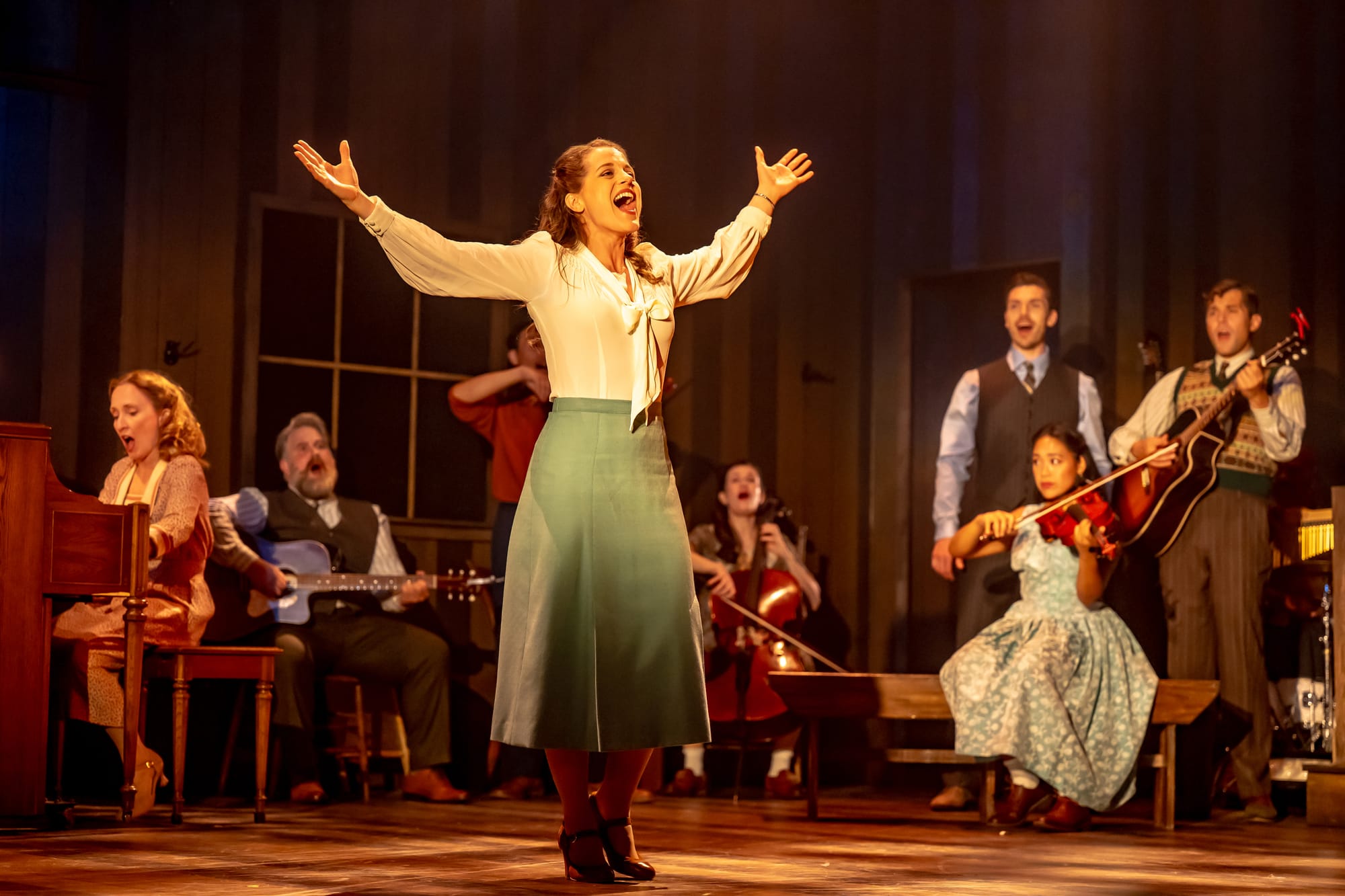
This (Canadian) Thanksgiving long weekend, I’m thankful for all the great theatre this city has to offer. I’m also thankful that the insane number of fall openings has slowed down to something more manageable. (Here are Parts 1 and 2 of my fall roundups.)
As always, check out my Toronto Theatre Listings page to see links to reviews and features. Many shows (I’m looking at you, Crow’s Theatre) have been extended, and I’ve included that info in the listing. Plus you can find out what new productions are on the horizon so you can plan your schedule. I’ve included listings up until January.
Meanwhile, here are some specific theatre things I’m thankful for.
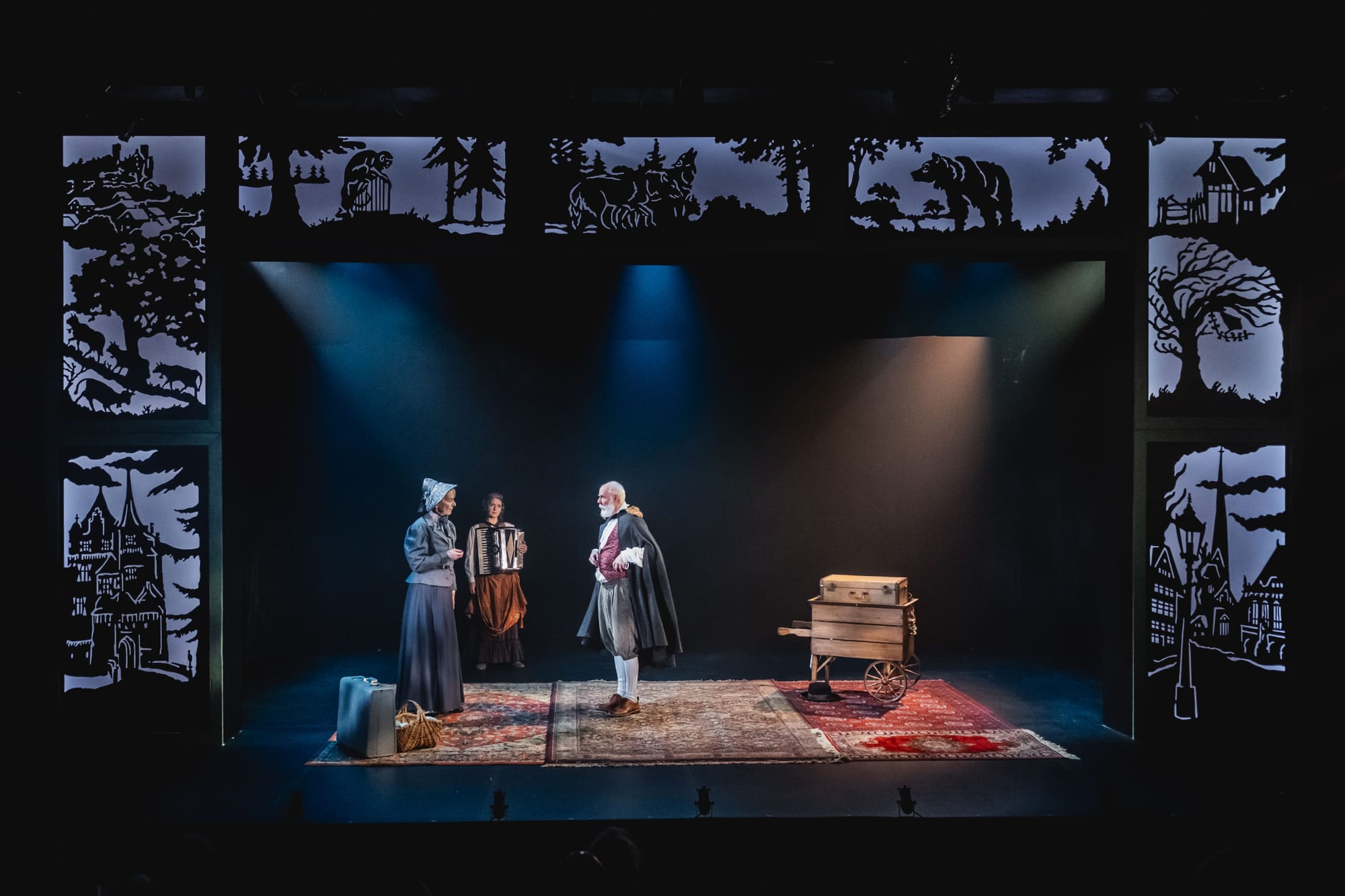
I’m thankful for... the three generations of onstage talent in Bremen Town
Gregory Prest came up through Soulpepper, where he was mentored by older artists like Nancy Palk, Oliver Dennis and William Webster. He worked especially closely with Palk, who played his mother in memorable productions of Ghosts and Long Day’s Journey Into Night.
So years later, it’s heartening to see him give back — as a writer and director — to Palk, Dennis and Webster as well as the luminous Sheila McCarthy in his moving allegorical play Bremen Town (Rating: ✭✭✭✭), which opened the Tarragon season last week.
Palk plays Frau Esel, an elderly housekeeper who after 45 years of service and three mistresses has been let go from a prominent household. She sets out to reunite with her estranged son, a clarinettist in a symphony orchestra in Bremen, a neighbouring town.
The train there isn’t working, so Frau Esel, carrying a basket and suitcase, decides to go by foot. Along the way, she meets other elderly people who have been similarly discarded by society.
Herr Hund (Dennis) is a second-rate magician who’s escaping his creditors. Herr Katze (Webster) has returned to town after being away, only to find much of what he once knew gone. And saddest of all is the fate of Frau Henne (McCarthy), who’s being treated like an animal by her son and his wife.
Periodically joining them are dozens of other characters, all played by three younger actors (Farhang Ghajar, Veronica Hortigüela, Dan Mousseau), filling out this world with sharply drawn portraits of townsfolk and even a dancing bear. A figure named Vogel (Tatjana Cornij) narrates, asking probing questions and adding accordion accompaniment.
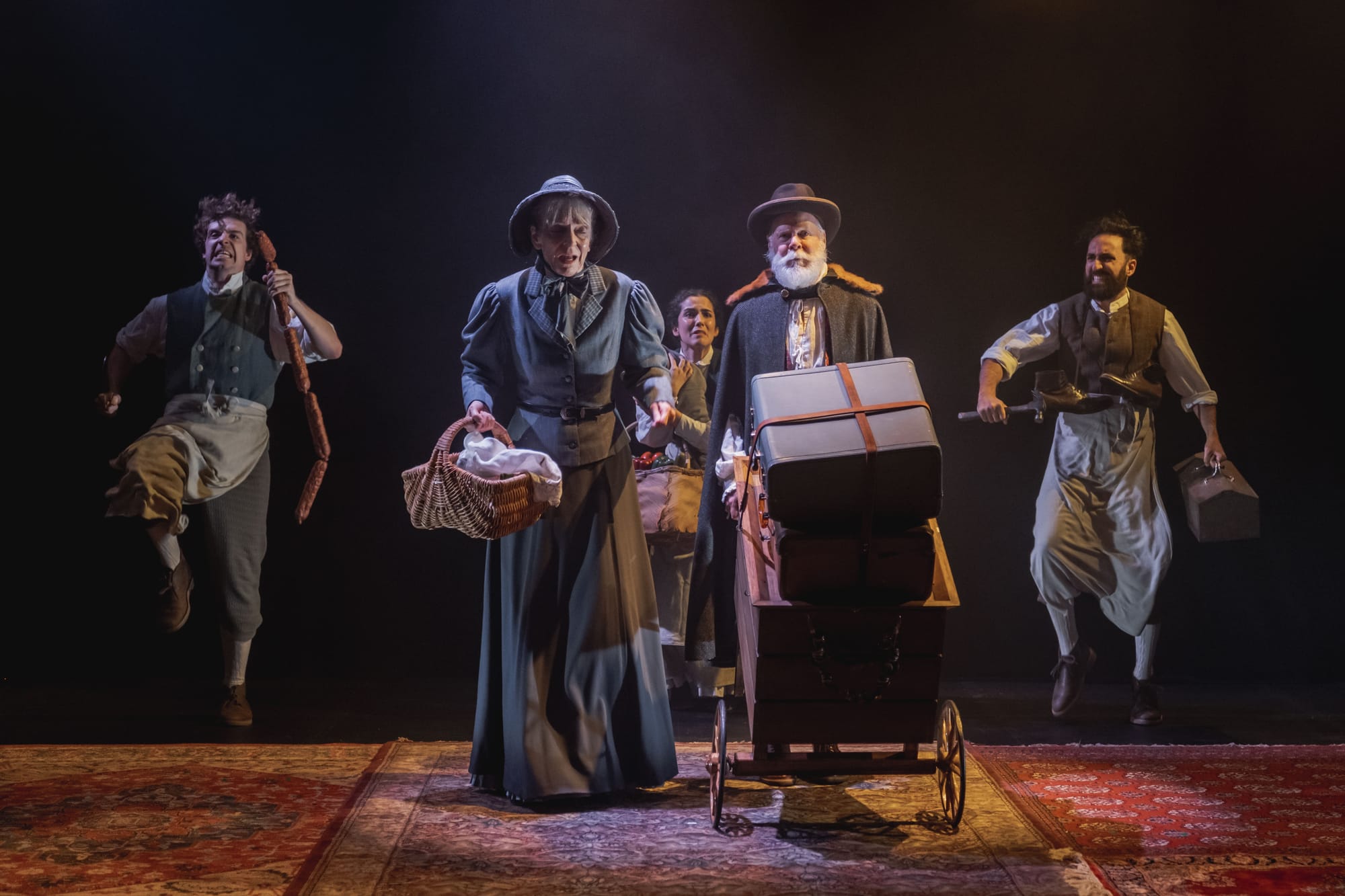
Prest was inspired by a Grimm fairy tale, and so there’s as much lightness as there is darkness. Appropriately, Nancy Perrin’s set is bordered by a black and white frame that suggests woodcuttings for a children’s book. And various images, evocatively lit by Logan Raju Cracknell, complete the feeling that we’re in a fable: a bird that flits everywhere, various kites that take on symbolic importance.
While the play, receiving its world premiere, has been fine-tuned since its 2023 Next Stage version, it still feels a little long; the middle section meanders, and although Frau Esel has a clear goal in mind, all the business about a kite festival seems a little unclear.
But Prest’s themes about dignity, empathy and kindness still resonate beautifully, and the performances are exquisite. Palk’s protagonist, initially steely and stubborn, gradually softens, but not in a maudlin way. Dennis, Webster and McCarthy carve out their characters with care. And the talented younger actors bring focus and vitality to their dozens of supporting characters.
Bremen Town continues at the Tarragon until October 26. Ticket info here.
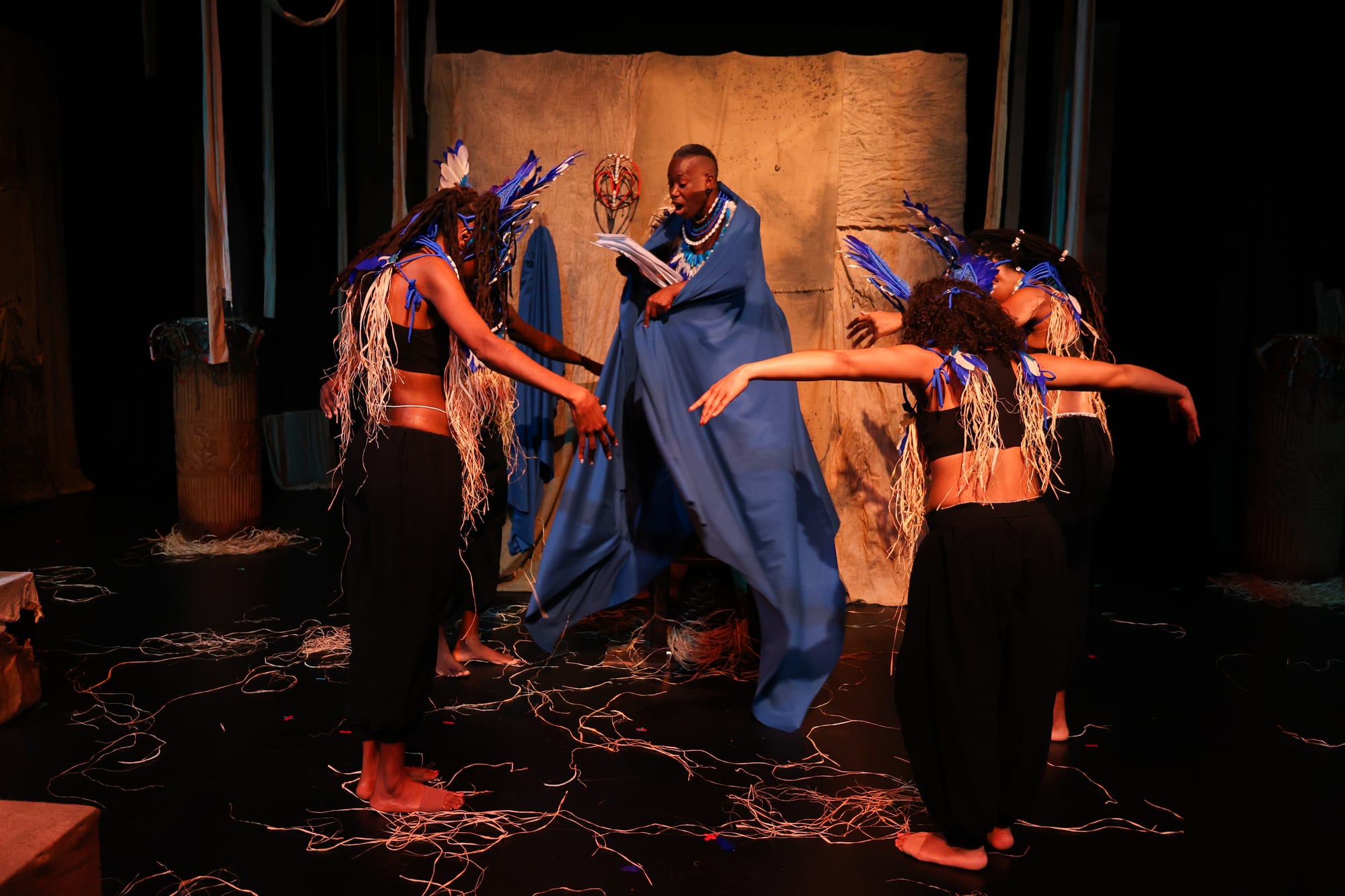
I’m thankful for... d’bi.young anitafrika’s epic about three generations of Black womyn
What a treat to see all three works in d’bi.young anitafrika’s Sankofa Trilogy in a 20th anniversary staging at the Theatre Centre, which coincided with the launch of the series in book form.
I still remember the astonishment of seeing one of the early incarnations of blood.claat (Rating: ✭✭✭✭), the first in the trilogy and still the most effective and complete of the three plays. It centres on 15-year-old Mudgu Sankofa, a bright, lively child who’s being raised in Jamaica by her grandmother.
Young takes care in filling out Mudgu’s world: chores, netball, class differences, her somewhat secretive relationship with an older boy named Johnny. Mugdu has also begun having her period, which gives the show its title. When her grandmother sends her to live with her aunt and uncle — Mudgu’s mother is living in Canada — some darker aspects of the young girl’s life emerge.
What’s remarkable is the efficiency and range of the storytelling; young, who also directs, lets us see her protagonist in various settings, being on a bus, doing laundry (and trying to remove the stain from her period), while also layering in the experiences of Mudgu’s female ancestors.
That rich world-building is missing in the other two plays: benu (Rating: ✭✭✭), which focuses on Sekesu, Mudgu’s child, as she gives birth to the titular character and experiences post-partum depression; and word! sound! powah! (Rating: ✭✭✭), which focuses on Benu, a dub poet who gets caught up in the socio-political upheaval around the Jamaican elections of 1980.
In benu, it can be difficult to get one’s bearings; the play seems to shuttle from Sekesu’s post-birth experiences, dealing with a constant headache and depression, and her trauma delivering the baby. (Perhaps this is intentional, evoking the confusion of her experience.)
word! sound! powah! has a looser feeling than the previous two plays. Young spends a lot of time introducing us to the group of poets, rappers and singers who embrace Benu as one of their own, but it feels like filler. There’s more drama in the lead-up to the election and performance, which is intercut with scenes where Benu is being interrogated by a police officer.
Even if the three plays could use more connective tissue between them, there’s consistency in the works’ design. Candice Dixon’s costumes for young and the multi-talented chorus (KayGeni, Kabrena Robinson, Keira Forde, Josemar) who help fill out the worlds, singing, dancing (choreography by Ern in Motion), drumming and providing support for young’s tour-de-force performance. A raised platform in Rachel Forbes’ set is used particularly well for the appearances of figures of authority.
Runs to Oct. 12 at the Theatre Centre (1115 Queen West). Ticket info here.
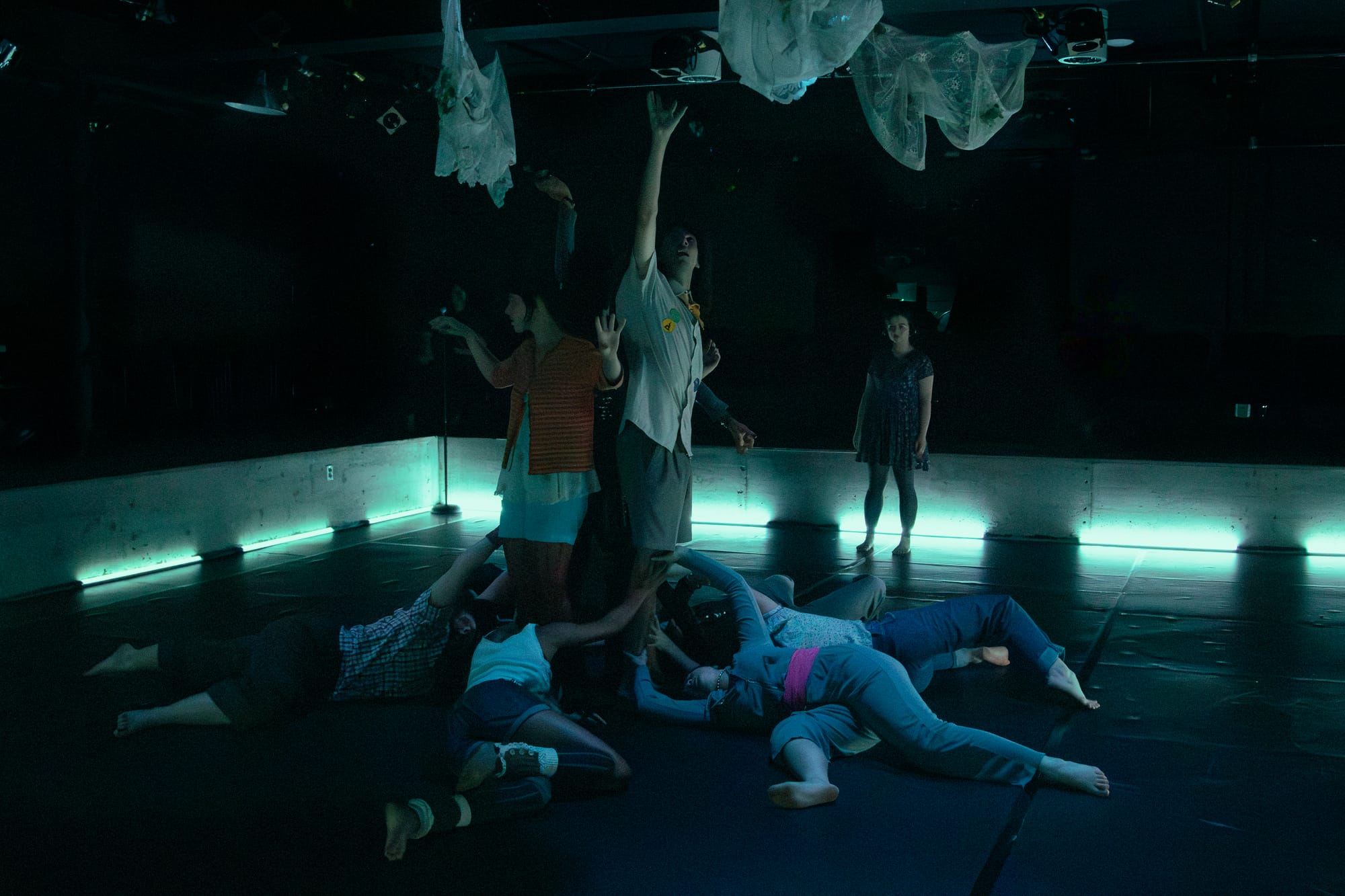
I’m thankful for... promising young indie companies like Pucker’s
Back in August, I wrote about two excellent indie theatre companies, and since then I’ve reviewed shows by King Black Box and Shifting Ground Collective. You can add Pucker’s to the list of companies I will definitely keep my eye on.
Founded by 郝邦宇 Steven Hao and Allison MacKenzie, the company debuted this week with a bold, imaginative, updated staging (co-directed by Hao and Alli Carry) of Jordan Tannahill’s Concord Floral (Rating: ✭✭✭✭). I remember seeing the original nine years ago at the Bluma, and am pretty sure it didn’t include a reference to Timothée Chalamet or Chat GPT.
The production grabs your attention from the moment you enter the BMO Incubator space at the Theatre Centre. Plastic sheeting — with a few holes ripped into it — is hung up around the perimeter, as the performers swirl around the sunken stage, their footfalls, breaths and voices (some live, pre-recorded) echoing in the space.
After that sheeting (set designer is Irene Ly) is removed — a terrific moment — the play begins, told in an elliptical fashion. The setting is the titular greenhouse, somewhere in the northern GTA, an abandoned place where teens would often hang out.
In swirling, criss-crossing vignettes, we discover that something bad happened there — there’s a corpse, a red sweater, and an iPhone — and that the ghosts of that event haunt 10 particular teens. A plot point that seems like something from a Stephen King story adds a surreal, horrific vibe.
There’s a lot going on. For one thing, the greenhouse itself has a voice, as do some non-human entities like a fox that once used the greenhouse to have babies. The directors have also created a detached POV by having actors speak lines into microphones while some actors play out their scenes physically.
I’m not entirely convinced that this last detail was necessary, but it does contribute to the production’s dreamlike, half-remembered feel. Carry’s choreography adds energy and momentum to the staging, resulting in some stunning tableaux, hauntingly lit by Mathilda Kane.
Rather than single out any member of the multi-talented cast, who weave in and out of the piece, I will name them all: Rachel Cucheron, Kole Dunford, Gillian Bennett, Mya Wong, Michaela Janse Van Rensburg, Chrystal Tam, Clara Isgro, Meg Gibson, Arjun Kalra and Trinity Lloyd.
I recognize some of their names, but most are new to me. I expect to see lots more of them in the future. And I look forward to what Pucker’s does next. This production made me see a play I thought I knew in a whole new way.
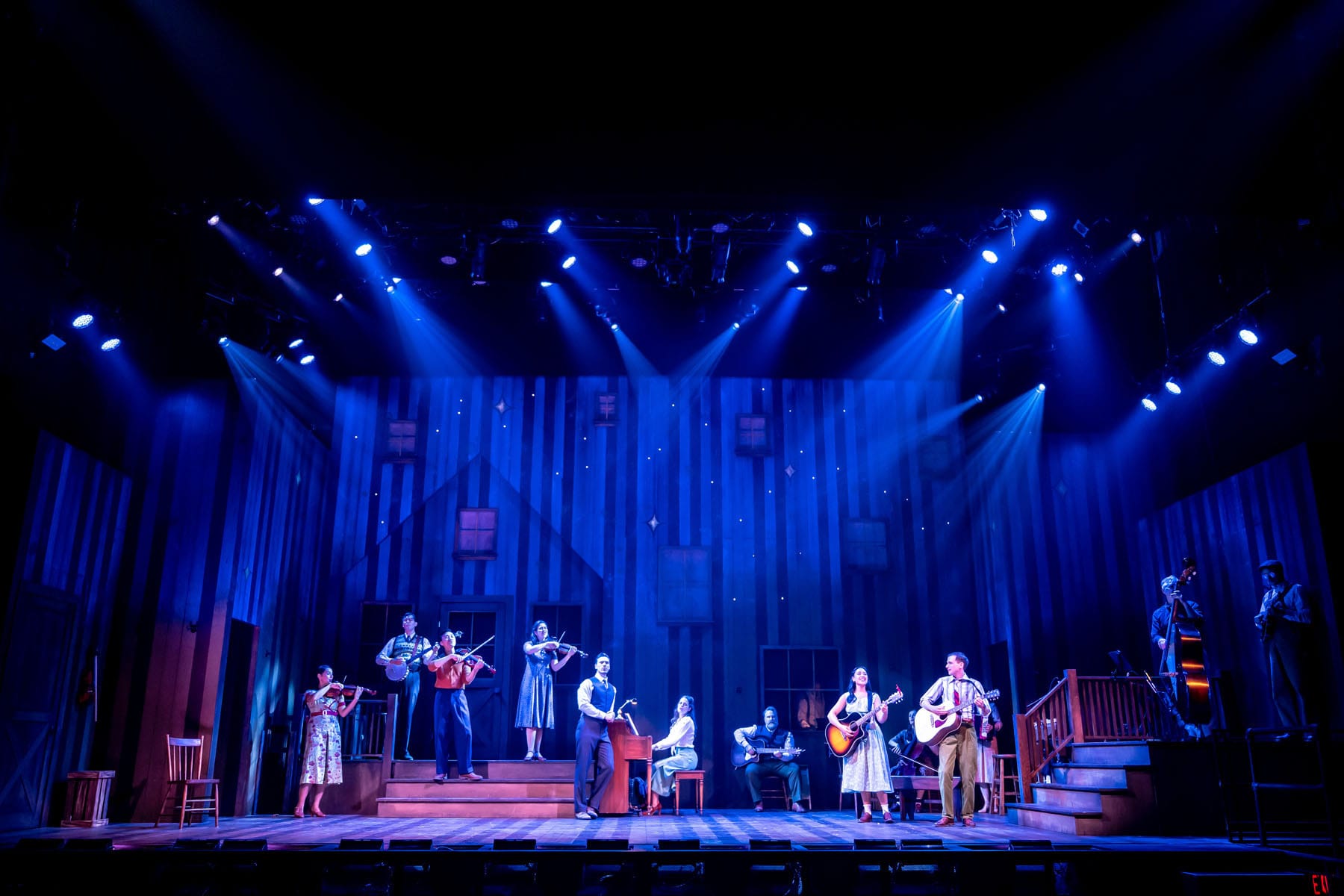
I’m thankful for... Garner Theatre Productions’ innovative staging of Bright Star
My review of Steve Martin and Edie Brickell’s musical Bright Star (Rating: ✭✭✭✭✭) is already up at the Toronto Star, but I wanted to link to it here, especially since I was so enthusiastic about it.
When three out of four musicals these days seem to be based on a famous pop star’s catalogue or adapted from a movie or book, it’s refreshing to see a new work — one with a clear, unpretentious book and score. I’m also surprised there aren’t more musicals with bluegrass scores. It’s not the most sophisticated style of music, but it evokes time and place beautifully, and it’s capable of joyous group numbers and soul-stirring ballads.
What makes this particular production so memorable is the fact that the entire show is performed by actor-musicians. Sure, we’ve seen elements of that before in shows like Once and Natasha, Pierre and the Great Comet of 1812. John Doyle famously staged Sondheim musicals having the characters play instruments, while a band played in the pit.
But when every actor hauls out an instrument (or two or three), and when their playing is an extension of their character and adds thematic shading to scenes, it’s next level. I’m really excited about what Garner Theatre Productions — headed by Donna Garner, who’s also in the cast — does next.
Bright Star continues until Nov. 2 at the CAA Theatre (651 Yonge). Ticket info here.
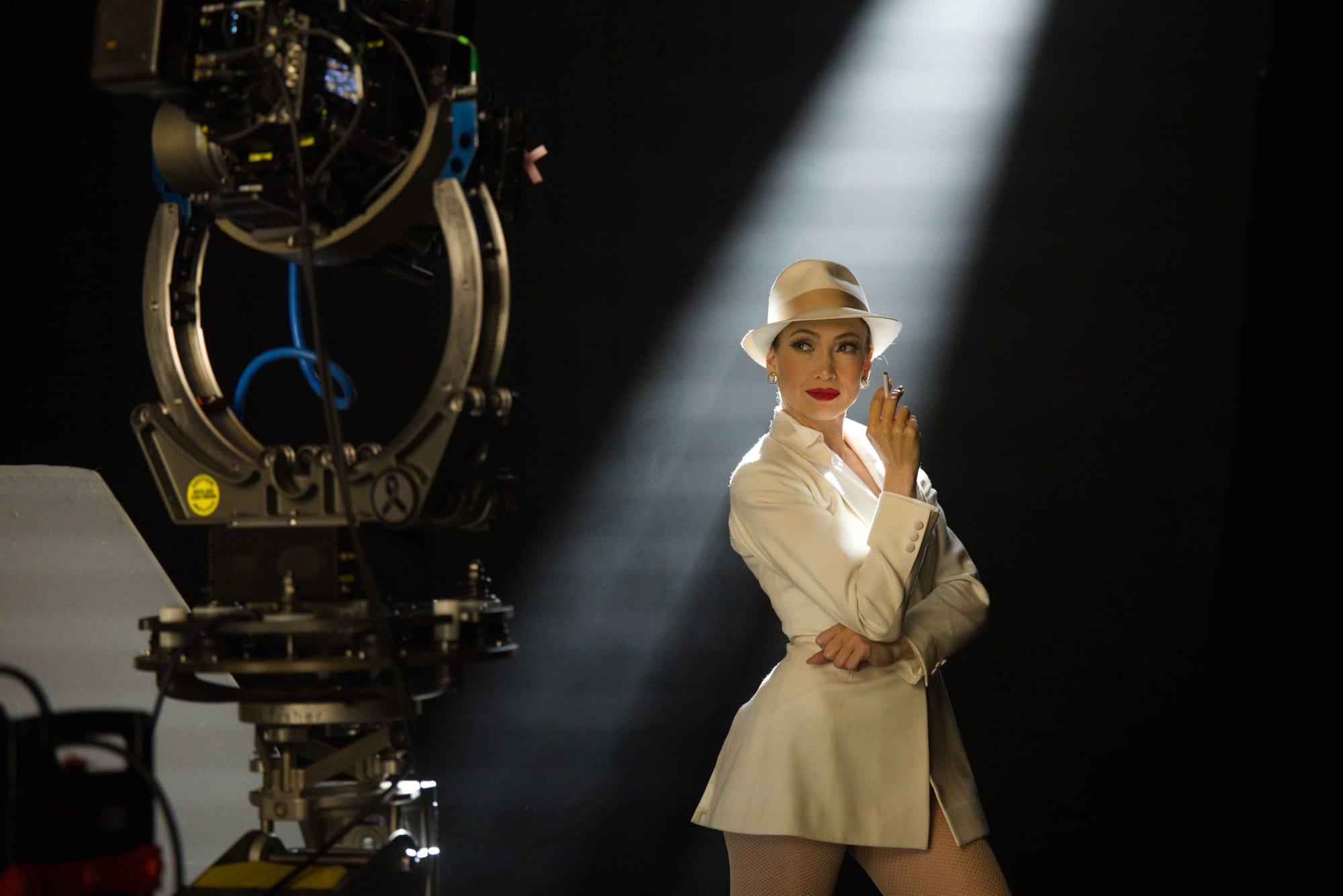
Upcoming: Review of Bill Condon’s new Kiss of the Spider Woman film, and Richard Linklater’s Blue Moon, starring Ethan Hawke as lyricist/songwriter Lorenz Hart.
